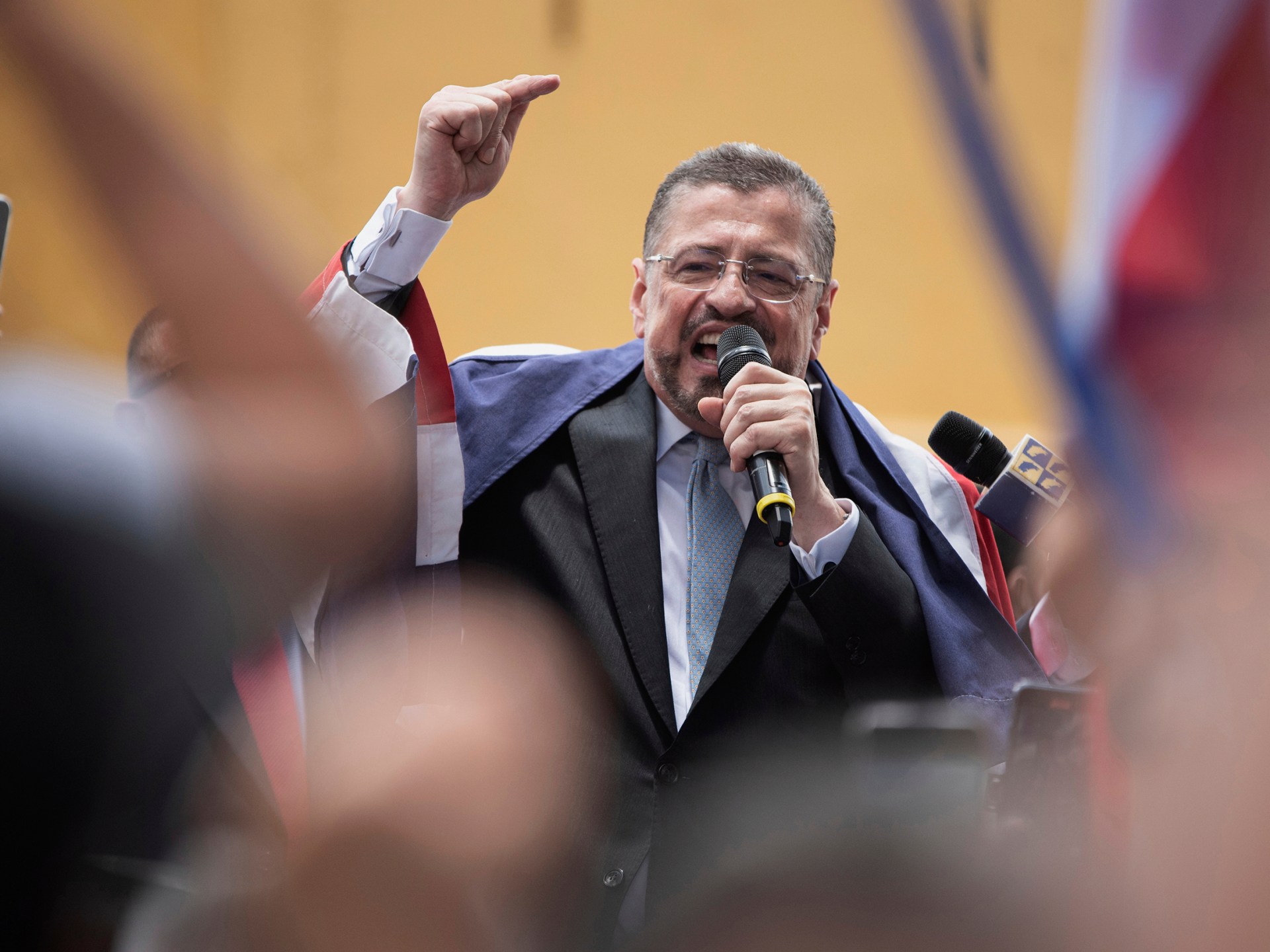The conservative president faced a legislative panel weighing whether he should retain his immunity from prosecution.
Rodrigo Chaves Robles has become the first sitting president in the history of Costa Rica to testify to a legislative committee as he faced charges of corruption and the possibility of a criminal trial.
The three-member committee held the hearing on Friday to consider whether or not to lift Chaves Robles’s immunity as president.
Doing so would pave the way for Chaves Robles to be prosecuted based on allegations he used government-related funds to give kickbacks to an ally.
Chaves Robles has denied any wrongdoing and accused his opponents of using the judiciary to oust his government.
“What we are experiencing has historic consequences,” Chaves Robles said on Friday. “The entire country is witnessing a legal rigging by the attorney general and the criminal court.”
He told his supporters outside the Legislative Assembly that his adversaries had “staged a ridiculous case to carry out a judicial coup d’etat” and convince the public he was a “scoundrel”.
The committee must deliver a report following Chaves Robles’s testimony to the full Legislative Assembly, which will then vote on whether to strip him of his immunity from prosecution.
A conservative economist and former minister of finance, Chaves Robles has been accused of forcing an associate to take money from a contract awarded by a development bank, the Central American Bank for Economic Integration, and use it to pay his former presidential adviser, Federico Cruz.
The sum was allegedly $32,000, and Cruz used it to buy a house, according to prosecutors.
The bank told the Reuters news agency that it had conducted its own internal investigation, the conclusions of which were provided to Costa Rica’s attorney general. Witnesses for the prosecution include the president’s former communications minister, Patricia Navarro, and businessman Christian Bulgarelli.
“I never ordered the delivery of money to anyone,” Chaves Robles said in response to the allegations.
His lawyer, Jose Miguel Villalobos, also argued that the accusations do not meet the “minimum requirements” for the removal of presidential immunity.
The Legislative Assembly would need a supermajority in order to strip Chaves Robles of his immunity.
Chaves Robles was considered a dark horse candidate when he ran for president in 2022, representing the conservative Social Democratic Progress Party.
Even then, however, he faced scrutiny for allegedly running an illegal parallel campaign financing structure. Multiple women also came forward to accuse him of sexual harassment during his time employed at the World Bank.
Chaves Robles is ineligible to run for a second term in 2026: The law does not permit back-to-back presidential terms.
Costa Rica is scheduled to hold its next presidential election on February 1, and Chaves Robles’s term is slated to end the following May.
